This week on the Atlas Total Health Blog, we wanted to highlight a common supplement prescribed by healthcare facilities and nutrition professionals – Magnesium. It’s often described as a natural muscle relaxation supplement, but WHO should be taking magnesium and how much? The answers to these questions (and much, much more!) are going to be covered in today’s article.
SPECIAL NOTE: Read all the way to the end of the article, read a real life case study and how magnesium helped one of our patients overcome crippling back pain.
5/8/2023
By: Alex Earl, DC
Spine Care Specialist
It’s no secret that magnesium is an essential mineral that our bodies need to function properly. From regulating blood pressure and supporting heart health to helping with nerve function and muscle relaxation, magnesium is involved in a wide range of bodily processes.
However, in my 8+ years of treating patients, the #1 most often overlooked aspect of magnesium is its effect on sleep.
In today’s fast-paced world, it’s easy to fall into the trap of thinking that sleep is a luxury rather than a necessity. But the truth is that getting enough sleep is crucial for our overall health and wellbeing. Sleep is when our bodies repair and regenerate, and it’s also essential for cognitive function and emotional wellbeing.
There is a direct correlation between sleep quantity, quality and overall pain.
Please note: This is a correlative statement, not a causative statement. Ice cream sales and crime both increase in the summer months. That does NOT mean ice cream sales cause increases in crime. The two sets of data are correlated. It is the same when it comes to sleep and pain states.
Unfortunately, many of us struggle with getting enough sleep. Whether it’s due to stress, anxiety, or physical discomfort, sleep disturbances can have a major impact on our quality of life.
This is where magnesium comes in.
Studies have shown that magnesium supplementation can improve sleep quality and duration, particularly in people with insomnia or other sleep disorders. Magnesium works by activating the parasympathetic nervous system, which is responsible for relaxation and rest. This can help reduce anxiety and promote a sense of calm, making it easier to fall asleep and stay asleep throughout the night.
But the benefits of magnesium don’t stop there.
For patients with neck, back, shoulder, knee, and/or hip pain, magnesium supplementation can be a game-changer. Magnesium has been shown to have anti-inflammatory properties, which can help reduce pain and inflammation in the body. This can be especially beneficial for patients with chronic pain conditions.
Additionally, magnesium plays a key role in muscle function and relaxation. When our muscles are tense or tight, it can lead to pain and discomfort. But by promoting muscle relaxation, magnesium can help alleviate these symptoms and improve overall mobility and flexibility.
So if you’re struggling with sleep issues or chronic pain, magnesium supplementation may be worth considering. Of course, it’s always important to talk to your healthcare provider before starting any new supplement regimen, especially if you’re taking any medications or have any underlying health conditions.
In conclusion, magnesium is a powerful mineral with a wide range of health benefits, from promoting sleep and relaxation to reducing inflammation and pain. By incorporating magnesium into your wellness routine, you can help support your body’s natural healing processes and live an active and healthy lifestyle.
When it comes to neck pain, back pain, shoulder pain, knee pain, and hip pain, magnesium may offer unique benefits that can help alleviate these conditions. For example, studies have shown that magnesium can help improve joint mobility and flexibility, which can be especially helpful for patients with arthritis or other degenerative joint diseases.
In one study, researchers found that magnesium supplementation helped reduce joint pain and stiffness in patients with osteoarthritis. Another study found that magnesium supplementation was associated with a lower risk of hip fractures in older women. This suggests that magnesium may play a role in maintaining bone health and preventing age-related bone loss.
In addition to its effects on joint health, magnesium may also be helpful for patients with muscle pain or soreness. For example, athletes and other active individuals may experience muscle cramps or soreness after intense workouts or physical activity. By promoting muscle relaxation, magnesium may help alleviate these symptoms and improve overall recovery time.
Another common condition that magnesium may also be beneficial for is patients with fibromyalgia. Fibromyalgia is a complex condition characterized by widespread pain and tenderness throughout the body, as well as fatigue, sleep disturbances, and other symptoms. While the exact cause of fibromyalgia is not fully understood, some researchers believe that magnesium deficiencies may play a role.
In fact, studies have shown that fibromyalgia patients may have lower levels of magnesium in their blood than healthy individuals. This has led some researchers to suggest that magnesium supplementation may help alleviate symptoms of fibromyalgia, including pain, fatigue, and sleep disturbances.
Of course, it’s important to note that more research is needed to fully understand the potential benefits of magnesium for patients with various types of pain. Additionally, magnesium supplementation may not be appropriate for everyone, and it’s important to talk to your healthcare provider before starting any new supplement regimen.
That being said, there are many potential health benefits of magnesium, from promoting sleep and relaxation to reducing inflammation and pain.
By incorporating magnesium-rich foods into your diet, such as leafy greens, nuts, and whole grains, and potentially supplementing with magnesium, you may be able to support your body’s natural healing processes and improve your overall health and wellbeing.
Real Life Case Study: “I finally got a good night’s sleep!”
Recently, a new patient came in for low back related treatment. After going through her complete health history, physical exercise history and her long-term goals, we set forth a plan (together) to help her overcome her back pain.
We put the plans into motion and started seeing almost immediate improvement. But, as with most things in life, there were some minor setbacks. She experienced some frustrating nights with very little sleep – due to the discomfort in her back.
After hearing her concerns about her muscles not relaxing during the night, she was concerned about her “ever getting a good night’s sleep again”.
Perhaps you can relate? Maybe you, too, have back or neck pain that interrupts and interferes with your precious sleep? If so, you should consider giving us a call to map out your options. They might be as simple and straightforward as it was for our patient this week, who, after one week of magnesium supplementation, came roaring into our Fort Oglethorpe office proclaiming, “I FINALLY got a good night’s sleep!”
Not only did she feel well rested and rejuvenated, BUT her low back problem was significantly reduced in overall sensitivity because she was able to sleep uninterrupted. It’s not that the magnesium cured her low back pain overnight, but it provided a wonderful window of opportunity for her low back to rest, recover and be restored by allowing the benefits of sleep to take control.
Do this next!
Maybe you (or someone you know) is in a similar situation to our 56 year old sciatica patient? If so, I have great news for you today… You are in the right place for relief. Every day, Chattanooga and North Georgia residents are getting the same relief as our recent patient. If you’d like to learn more about your options for overcoming spine pain, do the following:
- Share this Article with a Friend or Family member who currently has a stiff spine (or it sounds like they need a good “stretch”!)
- Call our office TODAY at (866) 668-0108 to book your next appointment!
- Keep an eye out for next week’s article!


